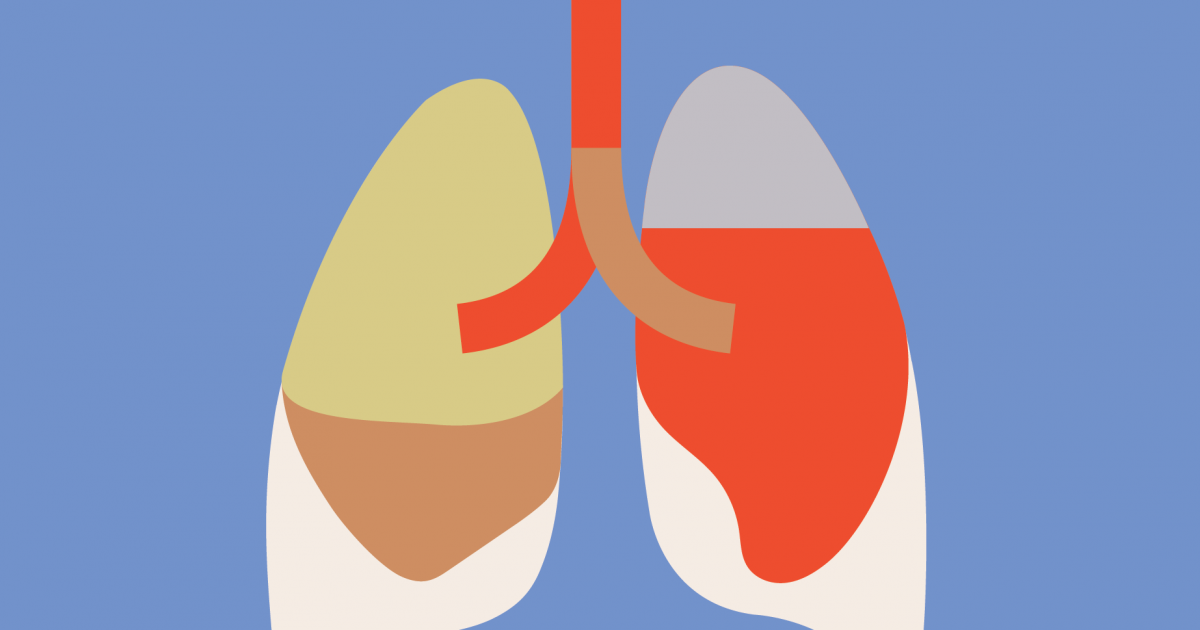New Hope for KRAS Mutations
- KRAS mutations are an abnormality more commonly seen in lung cancer patients who smoke or previously smoked.
- For decades, despite many attempts, KRAS-mutated lung cancer did not have a targeted therapy available.
- The first KRAS-targeted agent called sotorasib was approved in 2021.
- While the new approval comes with a lot of hope, there is still a lot of work to do when it comes to treating patients with this particular mutation.
For many years there was not an approved targeted therapy for lung cancer patients with the KRAS gene, but there has been some hope on the treatment front recently.
Read MoreHe added: “We are looking for mutations in genes like KRAS, EGFR, ALK, etc., and by finding these, we can get a better flavor for what makes this cancer tick and how to plan treatments down the line.”
A KRAS-Targeted Agent
For decades, KRAS-mutated lung cancer did not have a targeted therapy available. Chemotherapy was the only option for patients with locally advanced disease or disease that had spread (metastatic). This was not for lack of trying; many drugs were tested in clinical trials, but the lack of efficacy was thought to be from the unique molecular shape and structure of the KRAS protein.
However, in May 2021, the first KRAS-targeted agent called sotorasib received approval for patients who have received at least one prior systemic therapy such as chemotherapy. Approval was based on the clinical trial, aptly named "CodeBreak," which studied sotorasib vs. standard chemotherapy in non-small cell lung cancer patients with the KRAS G12C mutation. (It’s important to note that sotorasib only targets the KRAS G12C mutation and not other KRAS mutations. KRAS G12C makes up about 40% of mutations in NSCLC.)
The latest results of the CodeBreak trial were presented at the American Association for Cancer Research (AACR) annual 2022 meeting.
The CodeBreak Trial:
- The efficacy of sotorasib was evaluated in 174 patients whose disease had progressed on or after at least one prior systemic therapy.
- These patients were evaluated for two years.
- Overall, the response rate in patients receiving sotorasib was superior to chemotherapy. The objective response rate (ORR) was 40.7% with a median response duration of 12.3 months. (ORR measures how tumors are responding based on radiological tests.)
- 32.5% of patients still alive at two years.
Currently, a trial is underway studying the use of sotorasib as the first treatment for patients with locally-advanced or disease that had spread (metastatic). The primary results are expected in 2023.
“Eventually KRAS therapy is going to move to first line, but it’s the whole process,” Dr. Narjust Duma, a thoracic medical oncologist at the Dana-Farber Brigham Cancer Center, tells SurvivorNet. “We start in third line, second line and then eventually get to first line.”
Dr. Scott Strome, of the University of Maryland School of Medicine, explains how checkpoint inhibitors have changed cancer treatment.
Sotorasib Side Effects
Patients with brain metastases were not studied in the CodeBreak trial. This medication is given indefinitely until cancer progression or other reason to switch therapy. The most common side effects seen in patients are:
- Diarrhea
- Muscle aches and pains
- Nausea
- Fatigue
- Liver dysfunction
- Cough
Patients prescribed sotorasib should not take certain antacid medications like proton pump inhibitors (Prilosec, Prevacid) or H2 receptor blockers (Zantac, Pepcid).
The Significance of Sotorasib
Having an approved targeted agent for KRAS mutations is providing a lot of hope in the lung cancer community. Even those who study the disease admit that such a development would have been unheard of just a few years ago.
RELATED: What Do People With Lung Cancer Need to Know About Covid-19?
“Fifty percent of all patients with lung cancer have a target mutation now,” Dr. Duma tells SurvivorNet. “It’s 50% of stage four, and (cancer is) becoming a chronic disease for some of these mutations. So, the EGFR, the ALK, ROS1, those patients have very prolonged responses. Those are the survivors that … when I was a fellow, I never thought we’d see a patient live that long with stage four cancer.
“The other mutations, we end up 50%, BRAF, KRAS, MET and RET. They do have target pills, but their response is not that long,” she added, noting that with the newer mutations, the drug development has a long way to go.
Questions to Ask Your Doctor
- Has my cancer been tested for the KRAS gene?
- If positive for the KRAS gene, how will this affect my cancer treatment?
- Is there a specific medication I can use to target the KRAS gene?
- How will I know if that is working to treat my cancer?
Lung Cancer Survivor Reina Honts Is Fighting Back Against the Stigma 'You Have The Power To Change Your Future'
Learn more about SurvivorNet's rigorous medical review process.

